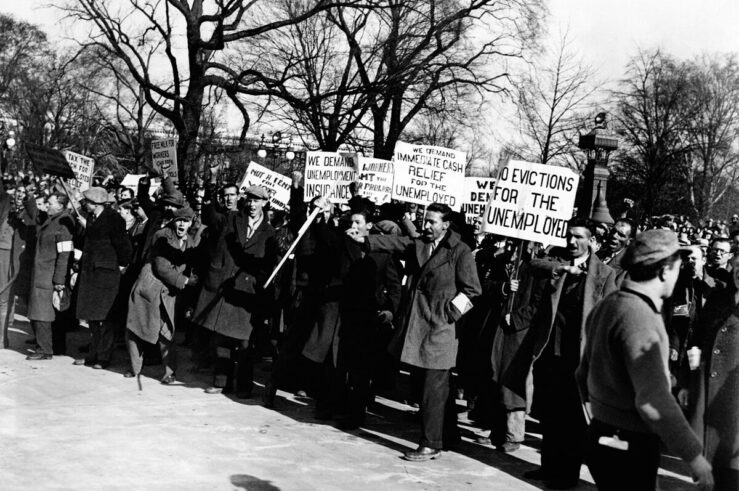
Last year, T-Mobile announced its intention to enter into a transaction with UScellular. The deal would include acquiring UScellular’s wireless operations, including its wireless customers and stores, as well as select spectrum assets. In addition, T-Mobile would enter into a long-term agreement to lease space on more than 2,000 UScellular towers.
Valued at $4.4 billion in cash and assumed debt, the transaction has raised only a few eyebrows, most notably among a half-dozen U.S. senators, including Sen. Elizabeth Warren (D-Mass.). In a letter to the U.S. Justice Department (DOJ) and Federal Communications Commission (FCC), the senators argued that the acquisition would further consolidate an already highly concentrated market, reducing competition and potentially leading to higher prices and fewer choices for consumers.
While the transaction will eliminate UScellular from some aspects of the wireless-services market, an issue brief published by the International Center for Law & Economics (ICLE) finds that the deal has the potential to generate significant consumer benefits and—contrary to the senators’ concerns—enhance competition in the mobile-wireless market.
The Competitive Context
UScellular is a regional carrier that operates in 21 states and covers only about 10% of the U.S. population. The company faces significant structural disadvantages relative to national providers like T-Mobile, AT&T, and Verizon. With just 1% of the nation’s wireless connections and a declining subscriber base, UScellular has struggled to maintain its competitiveness in a fast-evolving industry that demands heavy investments in 5G and other technologies.
National carriers benefit from scale economies, denser networks, and lower operational costs. In contrast, UScellular’s smaller size and fragmented geographic footprint have inhibited its ability to compete effectively. This is particularly true in rural areas, where deployment costs are disproportionately high due to geographic challenges. These limitations have translated into higher per-subscriber costs and slower adoption of next-generation networks, leaving UScellular in a precarious financial position.
UScellular provides no meaningful competitive constraints on T-Mobile. T-Mobile sets its plan prices nationally and does not adjust them based on local competition, including UScellular’s presence, pricing, or service offerings and quality. Given its small size, limited footprint, and uncompetitive pricing, UScellular plays no role as a “maverick” disrupting the market, and it is unlikely to do so in the foreseeable future.
Key Benefits of the Transaction
Rather than diminishing competition, the transaction ensures that T-Mobile can better compete with AT&T, Verizon, and emerging cable-wireless providers like Xfinity Mobile and Spectrum Mobile. By integrating UScellular’s spectrum assets and infrastructure, T-Mobile will enhance its coverage and service quality in rural areas, where T-Mobile’s network lags behind its performance elsewhere in the country.
Moreover, the acquisition addresses UScellular’s inability to scale investments, ensuring its assets are deployed more productively. ICLE’s review of the empirical literature on the effects of wireless mergers found that increased concentration—particularly in markets with three facilities-based operators—is associated with higher levels of long-term investment and potentially greater dynamic benefits. These benefits include faster and more reliable cellular service, reflecting improvements in dynamic welfare effects. The evidence also suggests that mergers resulting in markets with more symmetrical structures (i.e., where providers have roughly equal market shares) may further strengthen these positive investment effects.
T-Mobile’s acquisition of UScellular’s low-band and mid-band spectrum will allow for immediate improvements in network coverage and capacity. The 600 MHz and 700 MHz bands are particularly suited for expanding rural coverage, while the mid-band spectrum will bolster 5G deployment. Importantly, these spectrum bands are already compatible with T-Mobile’s existing network equipment, enabling a swift integration process that minimizes disruptions.
The integration of UScellular’s assets will also allow T-Mobile to densify its network infrastructure. T-Mobile can rapidly enhance network performance in underserved areas through a long-term lease agreement for more than 2,000 UScellular towers, driving better signal strength, faster data speeds, and improved service reliability.
This transaction aligns with T-Mobile’s reputation as an industry disruptor under its “Un-carrier” strategy. The company plans to expand its 5G home internet service to rural markets currently underserved by traditional broadband providers. This would offer millions of households a viable alternative, addressing the digital divide that persists in many parts of the country.
Additionally, T-Mobile has committed to maintaining affordable pricing and value-added services, ensuring that rural customers gain access to modern network capabilities without significant cost burdens. These improvements reflect the deal’s dynamic competitive benefits, extending beyond immediate price effects to long-term service innovations.
Addressing Concerns About Market Consolidation
Critics of the transaction have raised concerns about potential price increases and reduced competition, citing past acquisitions in the wireless market. These critiques, however, fail to account for the unique context of this acquisition:
- Limited overlap: UScellular’s regional footprint does not significantly overlap with T-Mobile’s existing network. In many areas, T-Mobile will simply replace UScellular as a provider, preserving the competitive landscape.
- Robust competition: The wireless market remains fiercely competitive, with AT&T, Verizon, and cable-wireless providers continuing to challenge T-Mobile. Cable operators, in particular, are rapidly capturing market share through innovative bundling strategies and aggressive pricing.
- Proven benefits from past mergers: Historical data from T-Mobile’s previous acquisition of Sprint demonstrates that mergers can yield higher network investments and improved consumer outcomes. Following that transaction, T-Mobile significantly increased its capital expenditures, enhancing its network and delivering better services to consumers.
A Path Forward
The T-Mobile/UScellular transaction presents an opportunity to address the structural challenges of a struggling regional carrier, while boosting competition and innovation across the wireless industry. With regulators at the FCC and DOJ assessing the deal, it is crucial to focus on the tangible consumer benefits and enhanced market dynamics it promises.
Rather than stifling competition, this transaction is more likely to enable T-Mobile to improve its service to rural areas and to compete against both existing and nascent competitors. Approval of this deal will ensure that consumers across the country—particularly in underserved regions—reap the benefits of improved connectivity and innovation.




